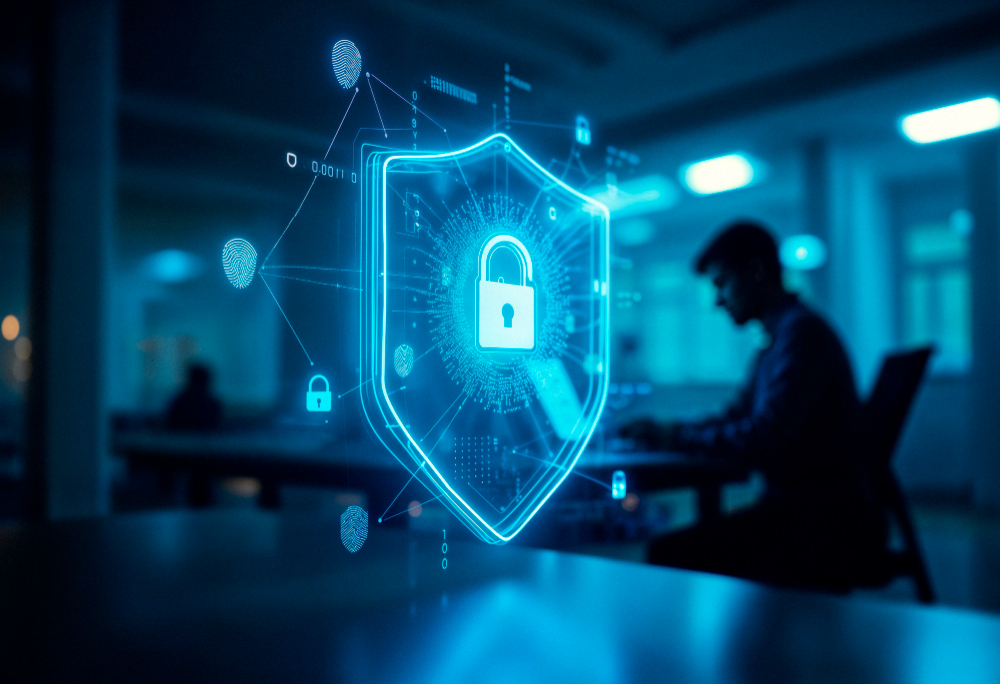Master AI Security Skills for the Future of Cybersecurity

Strong 8k brings an ultra-HD IPTV experience to your living room and your pocket.
Artificial Intelligence is no longer a futuristic concept—it's embedded in everything from mobile apps to enterprise systems. While AI offers unmatched innovation, it also introduces unique security risks that many developers and students are not yet prepared to tackle. The cybersecurity field is entering a new era where AI security skills are just as important as traditional network and application security. If you're a developer or student planning to thrive in tomorrow's job market, now is the time to master AI security.
Why AI Security Matters for Developers and Students
AI systems are fundamentally different from traditional software. They don't just follow fixed code—they learn from data, adapt over time, and often operate in unpredictable ways. This flexibility, while powerful, makes them vulnerable to entirely new forms of cyber threats.
For example, an attacker might feed malicious data into a model to alter its behavior, or subtly manipulate prompts to make a chatbot reveal sensitive information. These aren't typical vulnerabilities covered in most coding or cybersecurity classes.
For developers, understanding these risks is essential when integrating AI models into products. For students, gaining AI security training early provides a career advantage that will only grow as industries rely more on machine learning.
The New Frontier of Cybersecurity: AI-Specific Threats
The rise of AI introduces threats that are unfamiliar to many security professionals:
-
Prompt Injection Attacks – Crafting input that tricks an AI into giving unintended or harmful responses.
-
Data Poisoning – Inserting malicious or misleading data into a model's training dataset.
-
Model Inversion – Extracting confidential training data from a model's responses.
-
Adversarial Inputs – Slightly altered inputs that cause the AI to produce incorrect results.
-
Bias Exploitation – Using hidden biases in AI models to manipulate outputs.
Unlike common vulnerabilities, these attacks often exploit the way AI learns and processes information. Developers who understand these issues can design more secure AI-powered systems and protect against exploitation.
Learning by Doing: The Best Way to Build AI Security Skills
Reading about AI security is one thing—actually applying it in a real-world environment is another. The most effective way to develop AI cybersecurity expertise is through hands-on practice.
Lab-based exercises allow you to:
-
Build AI-driven applications from scratch.
-
Attempt controlled attacks to understand vulnerabilities.
-
Implement and test security defenses in real time.
For developers, this reinforces how secure coding practices intersect with AI-specific protections. For students, it builds a practical skill set that goes beyond textbook knowledge.
Core AI Security Skills Every Developer Should Learn
To succeed in this evolving field, there are several key skill areas you'll want to master:
1. Understanding AI and Machine Learning Fundamentals
A strong foundation in AI architecture is crucial. This means understanding how models are trained, deployed, and integrated into applications, as well as the security risks in each stage of the AI lifecycle.
2. AI Threat Modeling
Just like traditional software, AI applications need threat modeling—but with an AI-specific perspective. This involves mapping potential attacks against the model, its data pipeline, and its API endpoints.
3. Secure Prompt and Model Design
For AI chatbots and LLM-based tools, prompt security is critical. Learn how to sanitize inputs, avoid prompt chaining vulnerabilities, and design models that reject malicious or unsafe queries.
4. Defending Against AI Exploits
Master techniques for preventing prompt injection, detecting data leakage, and mitigating adversarial attacks. Implement robust monitoring so anomalies are spotted before damage occurs.
These skills are not just valuable for AI security specialists—they're becoming essential for all developers working on modern applications.
Future-Proofing Your Career Through AI Security
Demand for AI security professionals is growing rapidly. Organizations across finance, healthcare, government, and tech are looking for people who can secure AI systems before they're deployed at scale.
For developers, these skills open up roles in secure AI engineering, AI risk assessment, and advanced cybersecurity teams. For students, it's an opportunity to enter the workforce with expertise that's still rare but increasingly necessary.
By developing AI security skills now, you're not just learning for today—you're preparing for the next decade of cybersecurity challenges.
Getting Started: Steps for Students and Developers
Whether you're just starting your coding journey or you've been developing software for years, you can begin building AI security expertise with these steps:
-
Evaluate Your Knowledge – Identify gaps in your understanding of AI architecture and security basics.
-
Take Structured Training – Look for comprehensive AI security classes online that cover both theory and hands-on practice.
-
Join Challenges – Participate in Capture the Flag (CTF) events or AI security hackathons.
-
Engage with Communities – Share insights and learn from others in AI security forums, GitHub projects, and research groups.
The key is consistent, real-world practice—because AI security threats evolve fast.
Conclusion: The Time to Learn AI Security Is Now
AI is redefining cybersecurity, and professionals who understand how to secure AI systems will lead the next wave of innovation. For developers and students, this is the perfect moment to build the skills that will define future careers.
If you're ready to gain this expertise, Modern Security's AI Security Certification course offers a structured, hands-on path to mastering AI security concepts and defending against real-world AI threats. It's not just training—it's preparation for the future of cybersecurity.
Note: IndiBlogHub features both user-submitted and editorial content. We do not verify third-party contributions. Read our Disclaimer and Privacy Policyfor details.







